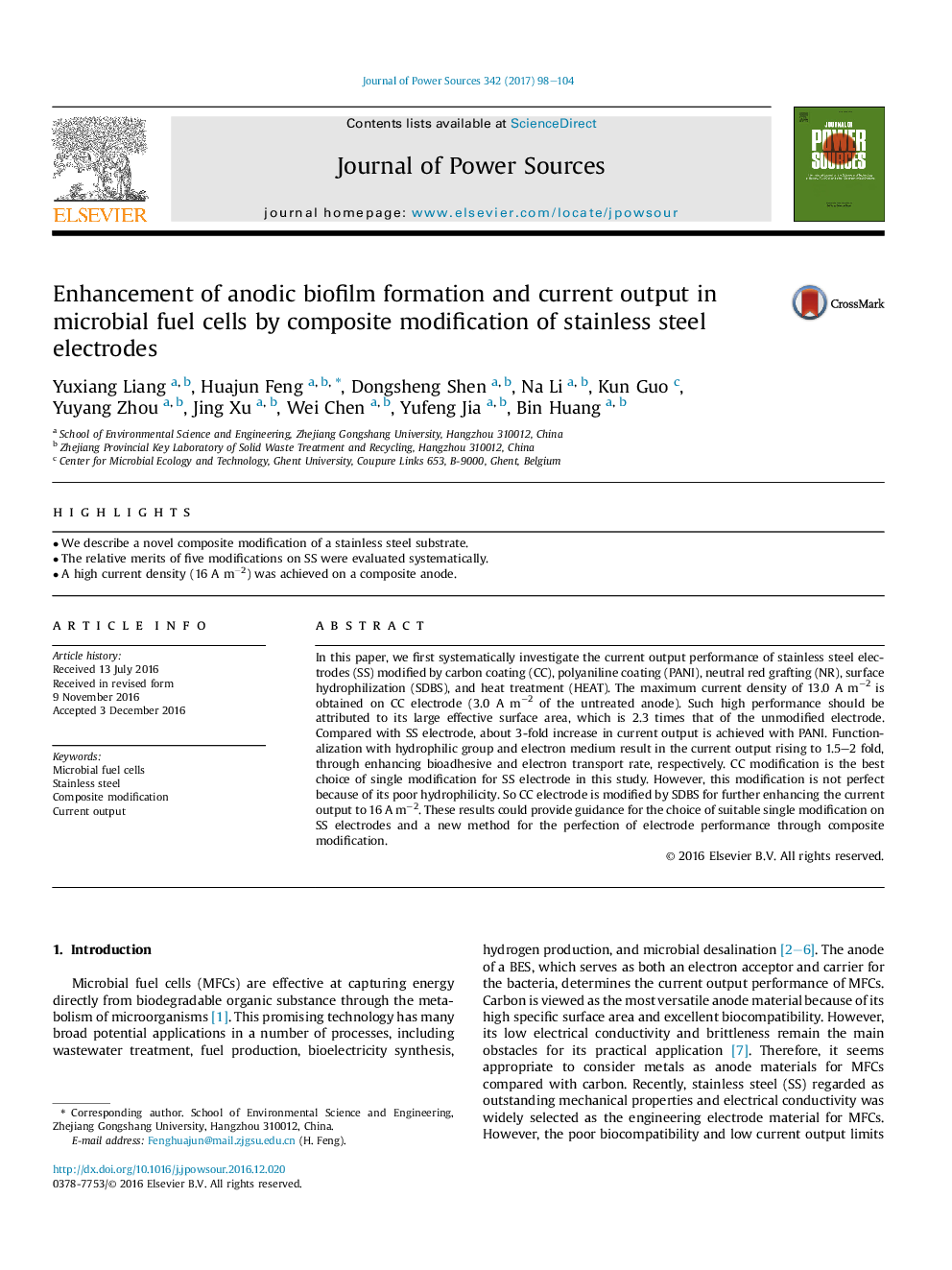| Article ID | Journal | Published Year | Pages | File Type |
|---|---|---|---|---|
| 5149679 | Journal of Power Sources | 2017 | 7 Pages |
Abstract
In this paper, we first systematically investigate the current output performance of stainless steel electrodes (SS) modified by carbon coating (CC), polyaniline coating (PANI), neutral red grafting (NR), surface hydrophilization (SDBS), and heat treatment (HEAT). The maximum current density of 13.0Â AÂ mâ2 is obtained on CC electrode (3.0Â AÂ mâ2 of the untreated anode). Such high performance should be attributed to its large effective surface area, which is 2.3 times that of the unmodified electrode. Compared with SS electrode, about 3-fold increase in current output is achieved with PANI. Functionalization with hydrophilic group and electron medium result in the current output rising to 1.5-2 fold, through enhancing bioadhesive and electron transport rate, respectively. CC modification is the best choice of single modification for SS electrode in this study. However, this modification is not perfect because of its poor hydrophilicity. So CC electrode is modified by SDBS for further enhancing the current output to 16Â AÂ mâ2. These results could provide guidance for the choice of suitable single modification on SS electrodes and a new method for the perfection of electrode performance through composite modification.
Keywords
Related Topics
Physical Sciences and Engineering
Chemistry
Electrochemistry
Authors
Yuxiang Liang, Huajun Feng, Dongsheng Shen, Na Li, Kun Guo, Yuyang Zhou, Jing Xu, Wei Chen, Yufeng Jia, Bin Huang,
